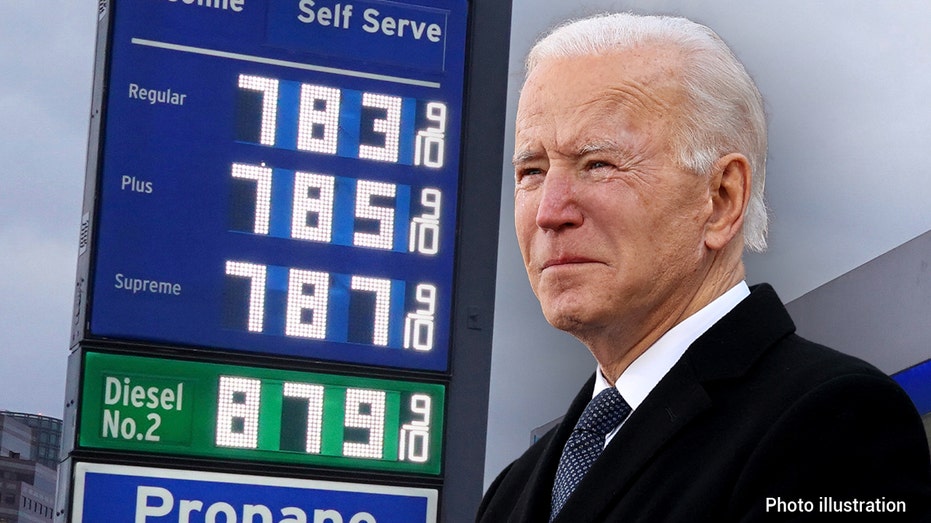Trump Administration's Energy Policies: Balancing Industry Support And Low Prices

Table of Contents
Deregulation and its Impact on Energy Production
The Trump administration pursued a significant deregulation agenda, aiming to boost domestic energy production and create jobs. This strategy involved easing environmental regulations and streamlining the permitting process for energy projects.
Easing Environmental Regulations
The rollback of environmental regulations, most notably aspects of the Clean Power Plan, had a profound effect on coal, oil, and natural gas production.
- Increased Production: Deregulation led to increased production across various energy sectors. While exact figures vary depending on the specific regulation and its impact, reports indicate a noticeable uptick in coal mining and oil and gas extraction in certain regions.
- Job Creation: The energy industry experienced a surge in job creation, particularly in coal-producing states, although the long-term sustainability of these jobs is a subject of ongoing debate.
- Environmental Concerns: Critics argued that deregulation led to increased greenhouse gas emissions, air and water pollution, and exacerbated existing environmental problems. These concerns sparked significant public debate and legal challenges.
Streamlining the Permitting Process
The administration prioritized expediting the approval process for energy projects, including pipelines and drilling permits.
- Faster Project Completion: This streamlining resulted in quicker project completion times, benefiting energy companies by reducing delays and costs. The Keystone XL pipeline, for instance, was a focal point of this policy shift.
- Reduced Costs: The accelerated permitting process significantly reduced costs for energy companies, enhancing their profitability and potentially lowering energy prices for consumers in the short term.
- Potential Environmental Impact Assessments: However, critics raised concerns that the expedited process might have compromised thorough environmental impact assessments, potentially leading to unforeseen ecological damage.
Fossil Fuel Promotion and its Economic Consequences
A central tenet of the Trump administration's energy policy was the promotion of fossil fuels – oil, natural gas, and coal. This strategy had significant economic ramifications.
Increased Domestic Oil and Gas Production
Policies favoring fossil fuels aimed to bolster domestic energy independence and stimulate job growth within the energy sector.
- Reduced Reliance on Foreign Oil: Increased domestic oil and gas production reduced the US's reliance on foreign energy sources, enhancing national energy security. However, the degree of this impact is debated, with some arguing the effect was marginal.
- Price Fluctuations: While increased production initially led to lower energy prices, global market forces and other factors also influenced price fluctuations. The relationship between domestic production and consumer prices was complex and not always directly correlated.
- Impact on Renewable Energy Development: The emphasis on fossil fuels arguably slowed down the growth of the renewable energy sector, diverting investments and political attention. This is a key area of contention in evaluating the Trump administration's overall energy strategy.
Impact on Energy Prices for Consumers
The combination of increased production and deregulation influenced energy prices for consumers.
- Short-Term Price Reductions: In the short term, increased domestic production contributed to lower gasoline and electricity prices in some regions.
- Long-Term Economic Considerations: The long-term economic consequences of relying heavily on fossil fuels, such as climate change-related costs and potential future price volatility, are still unfolding.
- Vulnerability to Price Shocks: Increased reliance on fossil fuels may make the US more vulnerable to global price shocks and fluctuations in the international energy market.
The Tension Between Industry Support and Environmental Concerns
The Trump administration's energy policies faced criticism for prioritizing industry support over environmental concerns. This tension remains a central point of debate.
Environmental Impact of Deregulation
Relaxed environmental regulations had significant consequences for the environment.
- Greenhouse Gas Emissions: The rollback of regulations led to an increase in greenhouse gas emissions, contributing to climate change. This increase is documented by numerous scientific studies and reports from environmental agencies.
- Air and Water Pollution: Reduced environmental oversight resulted in increased air and water pollution in certain areas, negatively impacting public health and ecosystems.
- Impact on Climate Change: Critics argued that the administration's policies actively undermined efforts to mitigate climate change, exacerbating its potential long-term effects.
Balancing Economic Growth with Environmental Sustainability
Finding a balance between promoting energy production and protecting the environment remains a significant challenge.
- The Role of Technological Innovation: Proponents argue that technological innovation can help address environmental concerns while continuing to support economic growth in the energy sector. However, this requires substantial investment and policy support.
- Public Opinion on Environmental Issues: Public opinion plays a crucial role in shaping energy policy. Growing public awareness of climate change has led to increased demand for environmentally sustainable energy solutions.
- Potential Long-Term Economic Costs of Environmental Damage: The long-term economic costs of environmental damage due to unchecked fossil fuel production could outweigh any short-term economic gains.
Assessing the Legacy of Trump's Energy Policies
The Trump administration's energy policies significantly boosted domestic energy production, resulting in short-term price reductions for consumers and job creation in certain sectors. However, this came at the expense of environmental protections, leading to increased greenhouse gas emissions and potential long-term environmental damage. The policies highlighted the inherent difficulty of simultaneously supporting the energy industry, ensuring low energy costs, and addressing environmental concerns. The long-term implications of these policies, both economically and environmentally, continue to be debated and analyzed. To gain a deeper understanding, further research into specific policies, their implementation, and the subsequent environmental and economic data is essential. Continue your exploration of the "Trump Administration's Energy Policies" and their lasting impact on the United States.

Featured Posts
-
 Is Happy Gilmore 2 Adam Sandlers Next Great Comedy
May 12, 2025
Is Happy Gilmore 2 Adam Sandlers Next Great Comedy
May 12, 2025 -
 Exclusif Avis D Un Animateur Sur L Arrivee De Hanouna Chez M6
May 12, 2025
Exclusif Avis D Un Animateur Sur L Arrivee De Hanouna Chez M6
May 12, 2025 -
 Billeteras Virtuales Uruguayas Sin Costo De Apertura Para Residentes Argentinos
May 12, 2025
Billeteras Virtuales Uruguayas Sin Costo De Apertura Para Residentes Argentinos
May 12, 2025 -
 Jeremy Stephens Ufc Return Fans React To Shocking Comeback
May 12, 2025
Jeremy Stephens Ufc Return Fans React To Shocking Comeback
May 12, 2025 -
 Ufc Fighter Shevchenko Debuts Custom Dragon Gear
May 12, 2025
Ufc Fighter Shevchenko Debuts Custom Dragon Gear
May 12, 2025
Latest Posts
-
 April Prinasa Zber Dat Pre Novy Atlas Romskych Komunit
May 13, 2025
April Prinasa Zber Dat Pre Novy Atlas Romskych Komunit
May 13, 2025 -
 Aktualizacia Atlasu Romskych Komunit Zber Dat V Aprili
May 13, 2025
Aktualizacia Atlasu Romskych Komunit Zber Dat V Aprili
May 13, 2025 -
 Kalyteres Platformes Gia Athlitikes Metadoseis Serie A
May 13, 2025
Kalyteres Platformes Gia Athlitikes Metadoseis Serie A
May 13, 2025 -
 Zber Dat Pre Aktualizaciu Atlasu Romskych Komunit Sa Zacina V Aprili
May 13, 2025
Zber Dat Pre Aktualizaciu Atlasu Romskych Komunit Sa Zacina V Aprili
May 13, 2025 -
 Serie A Pliris Odigos Metadoseon Agonon
May 13, 2025
Serie A Pliris Odigos Metadoseon Agonon
May 13, 2025
